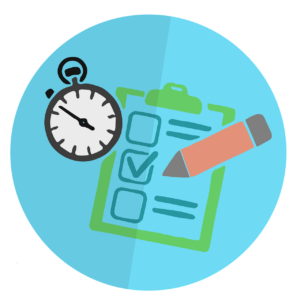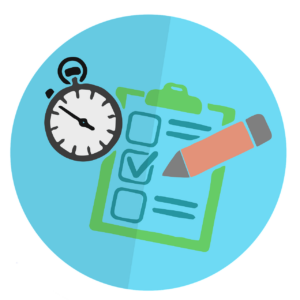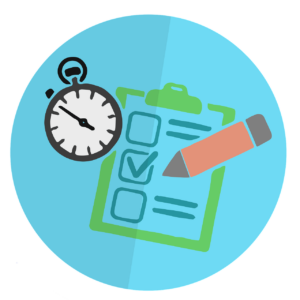Are you preparing to take the CNET Nursing Exam? This standardized test is a crucial step in becoming a licensed nurse, and it’s important to be well-prepared.
In this article, we’ll provide you with key information about the exam, as well as study tips and test-taking strategies to help you succeed. The CNET Nursing Exam covers a wide range of topics, from anatomy and physiology to pharmacology and patient care.
It’s a comprehensive test that requires a thorough understanding of nursing concepts and skills. But don’t worry with the right preparation and mindset, you can ace this exam and take the first step towards a rewarding career in nursing.
So let’s dive in and explore what you need to know to succeed on the CNET Nursing Exam.
Key Takeaways
- The CNET Nursing Exam is a standardized test for becoming a licensed nurse, which consists of 160 multiple choice questions covering various topics.
- Effective study tips include creating a study plan, taking practice exams, and collaborating with peers, while time management and anxiety reduction are important factors for success on the exam.
- Topics covered on the exam include anatomy and physiology, pharmacology, nursing fundamentals, mental health, and patient care, with a minimum score of 70% required to pass.
- Tips for success on the exam include prioritizing tasks based on their level of importance, consistently practicing and reviewing material to reinforce knowledge, and utilizing learning resources such as study guides, online courses, and practice exams.
Overview of the CNET Nursing Exam
The CNET nursing exam is a crucial step in becoming a licensed nurse, so it’s important to understand the exam structure and content.
The exam format consists of 160 multiple choice questions that cover various topics, including anatomy and physiology, pharmacology, nursing fundamentals, and mental health. You’ll have four hours to complete the exam, which is administered on a computer.
To pass the CNET nursing exam, you must achieve a minimum score of 70%. This passing score is determined by the National League for Nursing (NLN), which also creates and administers the exam.
It’s important to note that the CNET nursing exam is not the only requirement for becoming a licensed nurse; you must also complete an accredited nursing program and meet other state-specific requirements. However, passing the CNET nursing exam is a significant step in your nursing career and will help you demonstrate your knowledge and skills in the field.
Key Areas of Focus
When preparing for the CNET Nursing Exam, it’s important to focus on three key areas:
- Anatomy and physiology
- Pharmacology
- Patient care
You’ll need to have a strong understanding of the human body’s functions and systems, as well as how medications interact with them. Additionally, you’ll need to be well-versed in providing quality care to patients, from administering medication to communicating effectively with them and their families.
Anatomy and Physiology
Studying anatomy and physiology is crucial for passing the CNET nursing exam, so don’t skip over this important topic. You will need to have a deep understanding of the body systems and medical terminology to succeed in this section of the exam. The anatomy and physiology section will test your knowledge of the structure and function of the human body, including the different organs, tissues, and cells that make up each system.
To help you prepare for this section, it can be helpful to create a study guide or use flashcards to memorize important medical terms and their definitions. Additionally, it is important to understand the interplay between different body systems and how they work together to maintain homeostasis. Below is a table that outlines the major body systems and their functions to help you study for this section:
| Body System | Function |
|---|---|
| Cardiovascular | Transports oxygen and nutrients to the body |
| Respiratory | Facilitates gas exchange and regulates pH |
| Digestive | Breaks down food and absorbs nutrients |
| Nervous | Controls and coordinates body functions |
Remember, studying anatomy and physiology is not just about memorizing facts, but also understanding how the body works as a whole. With the right preparation and study techniques, you can feel confident and prepared to tackle this section of the CNET nursing exam.
Pharmacology
You’ll need to understand how drugs interact with the body in order to excel in pharmacology on the CNET nursing exam. This subtopic covers drug classifications and medication administration. Here are three things to keep in mind:
-
Drug classifications are important to understand because they determine how a drug will act in the body. Different classes of drugs have different effects, such as pain relief, lowering blood pressure, or treating infections. Knowing drug classifications can help you predict how a drug will work and what side effects to watch out for.
-
Medication administration is another crucial aspect of pharmacology. You’ll need to know how to give medications safely and correctly, including the right dose, route, and timing. This also involves understanding different forms of medication, such as tablets, capsules, injections, and intravenous fluids.
-
Finally, pharmacology requires attention to detail and careful documentation. You’ll need to keep accurate records of which medications were given, when, and in what dosage. This is important for tracking patient responses to treatment and avoiding medication errors.
By mastering drug classifications and medication administration, you’ll be well prepared for the pharmacology portion of the CNET nursing exam.
Patient Care
Patient care is all about providing compassionate and attentive treatment to those who need it most. As a nurse, it is crucial to ensure that patients are receiving the highest quality care possible. One major aspect of patient care is patient safety. It is important to be knowledgeable about the safety procedures in place to prevent accidents or injuries. This includes properly using equipment, following infection control protocols, and identifying potential hazards in the environment. By putting an emphasis on patient safety, you can help prevent complications and ensure that your patients receive the best possible care.
Communication skills are also an essential part of patient care. As a nurse, you will be responsible for communicating with patients, their families, and other healthcare professionals. It is important to be able to convey information clearly and effectively, while also actively listening to the concerns and needs of others. This can help build trust and rapport with patients, and ensure that they feel heard and understood. By honing your communication skills, you can provide better care and improve patient outcomes.
| Patient Safety | Communication Skills | |||
|---|---|---|---|---|
| Proper use of equipment | Clear and effective communication | |||
| Infection control protocols | Active listening | |||
| Identifying potential hazards | Building trust and rapport | |||
| Preventing complications | Understanding patient concerns | Utilizing checklists and double-checking procedures | Explaining medical jargon in layman’s terms |
Study Tips
To maximize your chances of success on the CNET nursing exam, it’s important to incorporate a variety of study techniques into your routine. Here are some effective strategies that can help you prepare for the exam and manage your time wisely:
-
Make a study plan: Create a schedule that includes specific study goals and objectives. Break down your study sessions into manageable chunks of time, and allocate adequate time for each topic.
-
Practice with mock exams: Take practice exams to familiarize yourself with the format and content of the CNET nursing exam. Analyze your results and identify areas where you need to improve.
-
Collaborate with peers: Join a study group or work with a partner to share notes, review material, and quiz each other. This can help you stay motivated, gain new insights, and reinforce your understanding of the material.
By incorporating these study tips into your routine, you can maximize your chances of success on the CNET nursing exam. Remember to prioritize your time wisely, stay focused, and take care of yourself during the studying process. Good luck!
Test-Taking Strategies
When it comes to test-taking strategies for the CNET nursing exam, it’s important to remember that preparation and confidence are key. However, there are also other important factors that can determine your success on the exam.
Two of these factors are time management and anxiety reduction.
Time management is crucial when taking any exam, especially one as comprehensive as the CNET nursing exam. Make sure to read through all of the questions carefully and pace yourself accordingly. Don’t spend too much time on any one question, as this can eat up valuable time that could be used to answer other questions. Additionally, if you finish the exam early, take the time to go back and double-check your answers.
Anxiety reduction is also important when taking any exam. The CNET nursing exam can be stressful, but there are strategies you can use to keep your anxiety levels in check. One strategy is to take deep breaths and focus on the present moment. Don’t let yourself get overwhelmed by thoughts of what could go wrong. Trust in your preparation and ability to succeed.
By implementing these test-taking strategies, you can increase your chances of success on the CNET nursing exam.
Pre-Exam Preparation
Preparing adequately before the test is essential if you want to increase your chances of success. One of the most important things you need to manage is your time. Plan out your study schedule and stick to it. Break down the material into manageable chunks and set aside specific times to study each section.
Make sure you also give yourself enough time to rest and recharge. Burning out before the exam won’t do you any good. Another crucial aspect of pre-exam preparation is stress management. It’s normal to feel anxious before a test, but it’s important to keep those nerves in check.
Find healthy ways to manage stress, such as meditation, exercise, or talking to a friend. Avoid cramming the night before the exam, as this will only add to your stress levels. Instead, take some time to relax and prepare yourself mentally for the test.
With proper time and stress management, you can walk into the exam feeling confident and ready to succeed.
Post-Exam Reflection
Now that you’ve taken the exam, it’s time to reflect on your results.
Take some time to review your performance and identify areas of improvement.
From there, create a plan for future success by setting goals and developing a study strategy that addresses your weaknesses.
Review Your Results
To enhance your understanding of the cnet nursing exam, it’s important to carefully review your results and identify areas where you need improvement. This step is crucial in improving your performance for the next exam. Here are some tips to help you analyze your mistakes and improve your exam results:
-
Look at your score breakdown: Take note of the sections where you scored the highest and lowest. This will help you determine which areas you need to focus on when studying for the next exam.
-
Review your incorrect answers: Go through each question that you answered incorrectly and try to understand why you got it wrong. Was it a lack of knowledge or a misunderstanding of the question? This will help you identify the areas where you need to improve your understanding.
-
Take note of the exam format: Pay attention to the types of questions that were on the exam. Were they multiple choice, fill-in-the-blank, or short answer? Understanding the format will help you better prepare for the next exam.
By reviewing your results and analyzing your mistakes, you can identify areas where you need to improve and develop a study plan to help you achieve better results on the next cnet nursing exam.
Identify Areas of Improvement
It’s time to take a closer look at your performance and pinpoint specific areas where you can improve your understanding and knowledge.
One way to approach this is to review your test results and analyze which questions you answered incorrectly or struggled with. This will give you an idea of which topics you need to focus on and where you need to improve.
Another important aspect to consider is time management. Did you struggle with finishing the exam on time? If so, it may be helpful to practice timed tests or work on strategies to manage your time better during the exam.
Additionally, take advantage of learning resources such as study guides, online courses, and practice exams to help you address areas where you need improvement. With dedication and effort, you can identify and address your weaknesses to improve your chances of passing the CNET nursing exam.
Create a Plan for Future Success
You can envision your future success by creating a personalized plan that includes setting achievable goals, utilizing resources, and consistently practicing and reviewing your knowledge. Start by setting specific goals for yourself, such as improving your knowledge in a particular area or increasing your overall exam score. Make sure your goals are realistic and measurable so that you can track your progress.
Next, consider your time management skills. Set aside dedicated study time each day or week, and prioritize your tasks based on their level of importance. Use resources such as study guides, practice exams, and online forums to aid in your preparation. Consistent practice and review of the material will help reinforce your knowledge and improve your chances of success. By putting together a plan that incorporates goal setting and effective time management, you can take control of your studying and increase your chances of passing the CNET nursing exam.
| Goal | Timeline | Resources |
|---|---|---|
| Improve knowledge in pharmacology | 4 weeks | Textbook, flashcards, online videos |
| Increase overall exam score | 8 weeks | Practice exams, study guides, tutoring |
| Improve time management skills | Ongoing | Time management apps, study schedule, accountability partner |
| Develop test-taking strategies | 6 weeks | Test-taking workshops, online forums, practice exams |
Frequently Asked Questions
How long is the CNET Nursing Exam?
The CNET nursing exam typically takes around three hours to complete, though the exact length may vary depending on the specific format of the exam you’re taking.
To prepare for the exam, it’s important to familiarize yourself with the exam format and structure, as well as to develop effective study strategies that work best for you. This may include creating a study schedule, reviewing key concepts and terminology, practicing sample questions, and seeking support from peers or professional resources.
With the right preparation, you can feel confident and well-prepared for the CNET nursing exam and achieve your goals in the field of nursing.
What is the passing score for the CNET Nursing Exam?
To pass the CNET nursing exam, you need to score at least 70%. However, achieving this score is no easy feat. The exam difficulty is high, and you will need to study extensively to ensure you comprehend the subject matter.
You need to focus on the key areas tested, such as medical terminology, pharmacology, anatomy, and physiology. You can use study resources such as practice exams, flashcards, and review notes to help you understand and remember the concepts.
Remember, passing the CNET nursing exam is crucial to your career, and with dedication and hard work, you can achieve your goal.
How often can the CNET Nursing Exam be taken?
You may be wondering how often you can take the CNET nursing exam. The frequency of taking the exam varies depending on the retake policy of the specific institution or organization administering the test.
Some institutions or organizations may allow retakes after a certain amount of time has passed, while others may have a limit on the number of retakes allowed. It’s important to check with your institution or organization for their specific retake policy.
Are there any accommodations available for individuals with disabilities taking the exam?
If you have a disability and are planning to take a standardized test like the CNET nursing exam, there are accommodations available to help ensure that you have a fair and equal testing experience.
These accommodations may include things like extra time, a private testing room, or additional breaks during the exam.
To request accommodations, you’ll typically need to provide documentation of your disability and submit a request to the testing organization in advance.
Once your request is approved, the testing environment will be set up to meet your needs and help you perform your best on the exam.
Can the CNET Nursing Exam be taken online or is it only available in-person?
You may be wondering if the CNET nursing exam can be taken online or if it’s only available in-person. Well, the good news is that the exam is available in both formats!
You can choose to take it online or in-person, depending on your preferences and circumstances. The online availability of the exam allows you to take it from anywhere with an internet connection, which can be convenient for those with busy schedules or who live far from testing centers.
However, keep in mind that the exam format may differ slightly between the online and in-person versions, so make sure to familiarize yourself with the specific requirements for each format before you take the exam.
Conclusion
Congratulations on making it to the end of this guide on the CNET Nursing Exam! By now, you should have a good understanding of what the exam entails, what areas to focus on, and some tips and strategies to help you succeed.
Remember, the key to passing the exam is preparation and practice. Use the study tips provided to create a study plan that works for you, and practice as much as possible to build your confidence and knowledge.
And don’t forget to take care of yourself during the process by getting enough sleep, eating well, and staying hydrated. With dedication and hard work, you can ace the CNET Nursing Exam and take the next step in your nursing career.
Best of luck to you!





















































































































